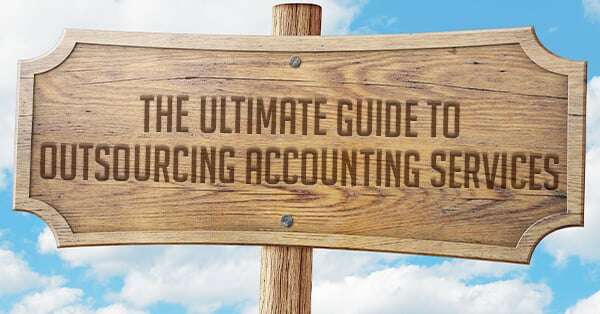The accounting team is one of the most important departments in any organisation. From taking care of end-of-year returns, processing tax and handling payroll, business leaders rely on the expertise and industry knowledge of these professionals. Before you consider looking offshore, here is the key information you need to help you get started.
What is outsourcing and how can it be applied to accounting services?
Outsourcing is a smarter resourcing strategy that takes the transactional, time-consuming tasks of an organisation and sends them to third-party team members - in another location. This can easily be applied to the accounting industry as many tasks are repetitive and rule-based, making it an easy transition.
What accounting functions can be outsourced?
There is a multitude of individual accounting services and tasks that can be outsourced, but to sum them up, here are the top three roles and key tasks:
-
Bookkeeping & Accounting
- BAS Statement Preparation
- Periodic reports and financial statements
- Preparation of annual forecasts and budgets
- Calculate income tax returns
- Process payroll
-
Accounts Payable & Receivable
- Code invoices
- Vendor payments
- Bank reconciliations
- Reconcile credit cards and petty cash
-
Accounts Administration
- Billing enquiries
- Direct debit adjustments
- New vendor setup
- Electronic filing and record maintenance
These are just a few of the key accounting tasks that can be outsourced in your organisation. For more information, this eBook can help you identify the ones that would be best suited to your business structure and growth plan.
Where can you outsource accounting services?
Location, location, location. Whether you decide to set up your outsourcing team locally, or overseas, the great thing about this cost-saving alternative is that it is easily accessible to organisations.
Outsourcing companies and organisations are located all over the world, so choosing the right provider, with the right employees, that match your company values is crucial. Asking the right questions to your potential third-party offshore provider is the first and best way to know you are on the right track before you outsource your accounting tasks. Covering topics such as operations, holidays and leave, security, HR and recruitment, and invoicing and management are just a few key points to touch on before taking the big leap into the outsourcing game.
Why outsource accounting services to the Philippines?
The Philippines has consistently maintained its position as a leader within the Business Process Outsourcing (BPO) industry, especially within the accounting space. With an expected 29.2% increase in cloud-based technology in firms around Australia, cost-saving alternatives such as outsourcing will become more and more achievable and practical for the accounting industry. Why do they continue to thrive? Here are 7 reasons why you should be outsourcing to the Philippines, but let’s focus on the four that make all the difference in the accounting industry:
-
English Language Proficiency
The Philippines has a Business English Index (BEI) of 7.95, which makes them ideal in understanding accounting terms.
-
Quality yet Cost-effective
Due to the lower cost of living in the Philippines vs Australia, your business ends up saving on costs without jeopardising quality. This is evident in the great business results BPOs in the Philippines have generated in recent years.
-
Cultural compatibility
As a result of colonisation, Filipinos have similar values and behaviours as Australia. In the accounting field, this ensures a sense of professionalism and attention to detail.
-
Excellent work ethic
Filipinos value respect and so, essentially, enjoy putting in honest effort so that they may be a part of an organisation’s success. As accounting can be quite technical at times, they bring a level of liveliness and commitment into the team and tasks they perform.
What are the benefits of outsourcing accounting services to the Philippines?
There are four significant benefits organisations will get from outsourcing accounting services to the Philippines:
- Cost-savings: by outsourcing to the Philippines, your employment costs are up to 70% less.
- Expert advice: a BPO guides your business to ensure the decisions you make lead to an increase in productivity and efficiency for your accounting team.
- Business growth: by outsourcing the transactional, time-consuming tasks to your offshore accounting team, you are freeing up time for your onshore staff to focus on tasks that foster organisational growth and drive revenue generation.
- Improve staff satisfaction: just as you free up time for your business to grow, you are freeing up the time for your onshore staff to grow. By relieving them of repetitive tasks, they can focus on what they were hired to do which, in turn, leads to higher employee satisfaction rates.
What does the future look like for the accounting industry?
As seen in our 2020 Accounting Industry Trend Report, the accounting industry is complex and ever-changing with projected growth averaging at 1.1% since 2014. What tends to accompany business growth is growing costs. Outsourcing in a booming industry such as accounting is just one way organisations can control these costs, without jeopardising the ability to leverage these growth opportunities.
Here are some key trends that companies are seeing in the accounting industry:
-
The impact of automation
- Software such as Xero and cloud-based programs are on the rise and increasing efficiency, sustainability and profitability in accounting firms. However, with all great technological advancements, there is an element of risk.
- Cybercrime and data security will always be a factor when transferring information online for your offshore teams. Due to the nature of outsourcing companies and the continued need to constantly transfer confidential data electronically, offshore organisations have become somewhat experts in the field of data security.
-
The ever-changing role of an accountant
- In the past, being an accountant was a fairly straightforward role. These days though, what an accountant does in one organisation, may not be the same as what another accountant does at a different organisation. Some are solely focused on tax preparation and financial statements, while others handle the bookkeeping, payroll processing and business planning. There doesn’t seem to be any one true ‘scope’ to their role anymore.
- As government regulations on tax compliance increase, so will the experience and expertise you seek in your outsourced accounting team. Outsourcing organisations take the time to speak to your business leaders and understand what tasks, KPIs and expectations you are looking for in your offshore accountant to keep your business on the right track.
-
Recruitment and the capacity to do it
- With business growth within the accounting industry not looking to ease up anytime soon, many accounting firms are seeking alternative recruitment strategies to help balance the volumes of work they now face. By hiring offshore staff in the Philippines, this future problem can be met with a cost-effective solution.
With all these changes set to happen in the next few years, it’s now more important than ever for organisations to have a solid business plan moving forward for their accounting team. A low-cost alternative, such as outsourcing to the Philippines, may be what sets your accounting services apart from others and give you a competitive edge in the market.
We performed a case study on a mid-sized accounting and advisory firm that had previously tried to create a business model in Australia using local staff, but couldn’t achieve their desired results. In 2014, they approached Beepo looking to outsource to the Philippines and started with two offshore accountants. Now, in 2020, they are still with us and have grown to eleven team members, all due to the scaling and business growth success they’ve achieved by outsourcing to the Philippines.














































.jpg?width=299&height=196&name=Mega%20Menu_FAQs%20(1).jpg)








